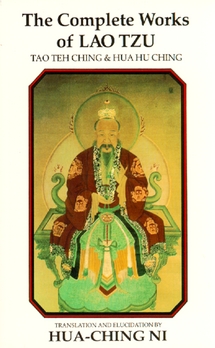

HUA CHING NI BOOK OF CHANGES HOW TO
Its everlasting popularity lies in the lessons that it teaches about how to use your positive qualities in order to attain life's greatest rewards-prosperity, understanding, and peace of mind. When its wisdom is sought with sincerity and sensitivity, this Chinese oracle will help to promote success and good fortune and to impart balance and perspective to your life. For centuries, The I Ching or Book of Changes has been consulted for sage advice at life's turning points. The result is a modern classic on it's own. The bestselling translation of one of the world's great classics, now in a beautiful new edition For more than a quarter of a century, Brian Browne Walker's translation of I Ching has been not only the bestselling English rendition of the classic Taoist text, but one of the few directly translated from the original text. The I Ching or Book of Changes Book Review: Reading more different books about it and taking the scholar's approach probably wouldn't add anything, because this is something you need to experience and relate to your own life, not read about!. This book gives me what I need to incorporate the I Ching into my life. What it comes down to is that I like this guy, I trust his translation and interpretation (on instinct and recommendation from Mantak Chia of this version), and don't feel the need to read more elsewhere. More instructions would only confuse things! But if you want to know more about that you can look on the internet, and his main point is to keep it as simple as possible, so he didn't need to say any more about different methods. There are instructions on how to actually consult the I Ching, but not very extensive considering how big the book is. The introduction is very interesting from a Taoist philosophy point of view, it puts it all in context.

The divination and guidance from the hexagrams are the important bit, and that will be true so long as you approach it with a pure heart and a clear mind. Some of the introductory sections are inspiring, some are strange and confusing, but that's Taoism for you! I'm not convinced by all of it, but I don't need to be. I suppose a true scholar could compare this to other I Ching translations and commentaries, and rate based on that. I'm not sure how much of the hexagram commentary is his, how much is from Confucius etc. What am I scoring? The ancient wisdom of the Taoist masters? No-one could be that presumptious, surely? I don't know the original language, and haven't read other translations or commentaries, so can't really judge Ni Hua-Ching's contribution. It's hard to know how to assign star ratings to this book. The rest is for a lifetime of consultation and study. So I'm kinda finished, as I've done as much of it as I intend to read in order as a book. The main part of the second half, the guidance of the 64 specific circumstances that is the actual I Ching, I've deliberately left to explore as I'm led to the hexagrams by asking guidance for specific questions. What am I scoring? The ancient wisdom of t I've read all the introductory sections.


 0 kommentar(er)
0 kommentar(er)
